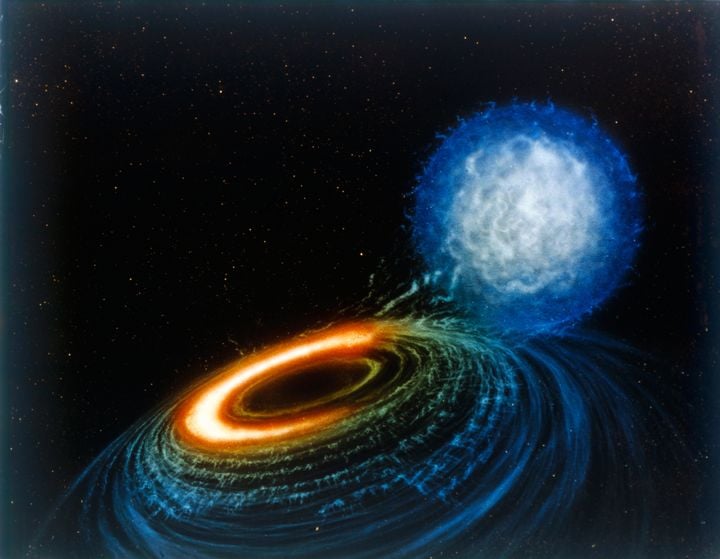Science
Queen’s University Scientists Launch Ambitious Black Hole Research

Researchers from Queen’s University Belfast are embarking on a groundbreaking project aimed at unraveling the mysteries of black holes. This initiative, known as the Time Domain Extragalactic Survey (TiDES), will involve a comprehensive analysis of the life cycles of stars and their interactions with black holes.
The project brings together a team of astronomers from across the UK and will utilize the new four-metre Multi-Object Spectroscopic Telescope (4MOST) facility, located at the VISTA telescope of the European Southern Observatory in Chile. Over the next five years, the team plans to conduct millions of detailed spectral observations, capturing light from cosmic objects across the entire spectrum of colors.
Dr. Matt Nicholl, one of the leading researchers, expressed enthusiasm for the project’s potential. He stated, “Having access to this kind of data for tens of thousands of exploding stars and hungry black holes gives us a real opportunity to unlock some of the mysteries around how stars evolve and die.” The primary focus will be on identifying stars that have been consumed by black holes, particularly those classified as “medium-size,” which have masses larger than typical stars but smaller than the supermassive black holes found in large galaxies.
October 21, 2023, marks a significant milestone as the project gears up to begin its observational work. The team aims to provide high-precision measurements of nearly 1,000 supermassive black holes, 10,000 supernovae, and 100,000 galaxies, which could lead to the discovery of new types of stellar explosions.
Professor Stephen Smartt highlighted the complexity of the initiative, noting that it could transform current understanding of how galaxies and black holes interact. He likened the search for unusual cosmic events to “finding a needle in a galactic haystack.” With the first light obtained from 4MOST, the team is set to delve into this vast collection of data every night.
Through TiDES, UK astronomers will also gain access to valuable data from the US National Science Foundation and the US Department of Energy’s Vera C. Rubin Observatory, thanks to their collaboration with the Legacy Survey of Space and Time (LSST). This partnership enhances the project’s potential for groundbreaking discoveries in astrophysics.
As the team embarks on this ambitious venture, the hope is to gain deeper insights not only into black holes but also into the broader workings of the universe. The findings from TiDES may not only illuminate the nature of black holes but could also reshape the understanding of cosmic evolution itself.
-

 Entertainment3 months ago
Entertainment3 months agoAnn Ming Reflects on ITV’s ‘I Fought the Law’ Drama
-

 Entertainment4 months ago
Entertainment4 months agoKate Garraway Sells £2 Million Home Amid Financial Struggles
-

 Health3 months ago
Health3 months agoKatie Price Faces New Health Concerns After Cancer Symptoms Resurface
-

 Entertainment3 months ago
Entertainment3 months agoCoronation Street’s Carl Webster Faces Trouble with New Affairs
-

 Entertainment3 months ago
Entertainment3 months agoWhere is Tinder Swindler Simon Leviev? Latest Updates Revealed
-

 World2 weeks ago
World2 weeks agoBailey Announces Heartbreaking Split from Rebecca After Reunion
-

 Entertainment4 months ago
Entertainment4 months agoMarkiplier Addresses AI Controversy During Livestream Response
-

 Entertainment2 weeks ago
Entertainment2 weeks agoCoronation Street Fans React as Todd Faces Heartbreaking Choice
-

 Science1 month ago
Science1 month agoBrian Cox Addresses Claims of Alien Probe in 3I/ATLAS Discovery
-

 Health4 months ago
Health4 months agoCarol Vorderman Reflects on Health Scare and Family Support
-

 Entertainment4 months ago
Entertainment4 months agoKim Cattrall Posts Cryptic Message After HBO’s Sequel Cancellation
-

 Entertainment3 months ago
Entertainment3 months agoOlivia Attwood Opens Up About Fallout with Former Best Friend





















